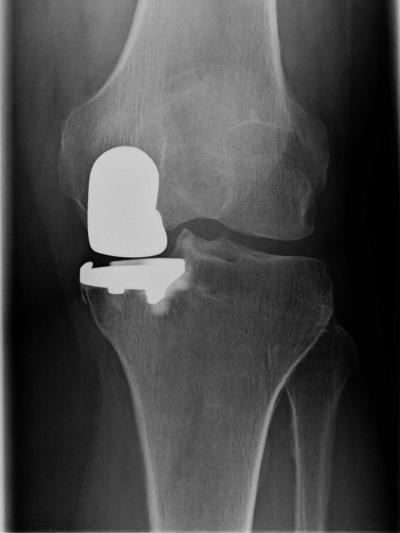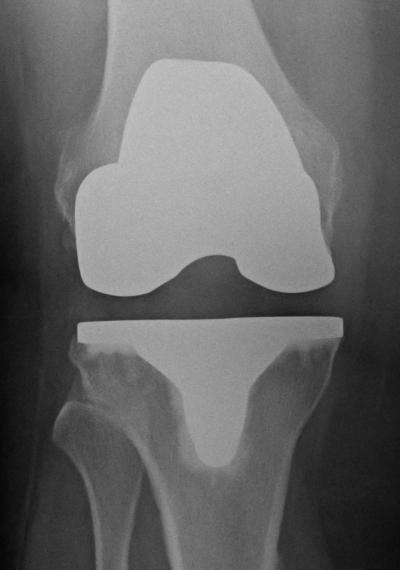Endoscopic surgery
The standard for early degenerative processes such as menisci damage, early traumatic damage or cartilage defects, is endoscopic knee joint surgery. The method is established like none other and has been practiced for 30 years. Endoscopic surgery of the joint can be supplemented by several other methods. Not only can damaged structures by removed during this procedure, but it is also possible to reconstruct menisci or ligaments. Transplantation of cartilage, too, is of high value.
Read More... Reconstruction with minimally invasive approach
In addition to the endoscopic approach, the minimally invasive approach also plays an important role. Some of the before-mentioned interventions can be supplemented by a minimally invasive approach, or partial prosthesises of a joint compartment, so-called sledge prosthesises, are considered. For this, a minimally invasive approach is extremely helpful as the patient can be remobilized very quickly.
Read More... Total knee replacement
If there has not been sufficient improvement after all efforts, total knee replacement is the treatment of choice. Replacement of the joint is based on the prevailing conditions; there is an extensive choice of prosthesises. The prevailing condition of the joint is taken into account for all implants; however the surgeon’s experience is the deciding factor. Our surgeons will always take the individual prevailing condition of the patient into consideration and act according to the European guidelines for endoprosthetic treatments.
Read More... Revision surgery
Up until a few years ago, revision surgery of the knee joint, be it endoscopic or open, follow-up endoscopy or change of prosthesis, was extremely controversial, as the results appeared problematic. The systematization of various studies on this topic and the increasing experience shows, however, that repeated interventions can improve the function of the joint and thus the quality of life of the patient. The surgeon’s experience is decisive, which is why every revision surgery should be presented to an experienced colleague.
Read More... 




 Stenum Hospital
Stenum Hospital Asklepios Hospital
Asklepios Hospital